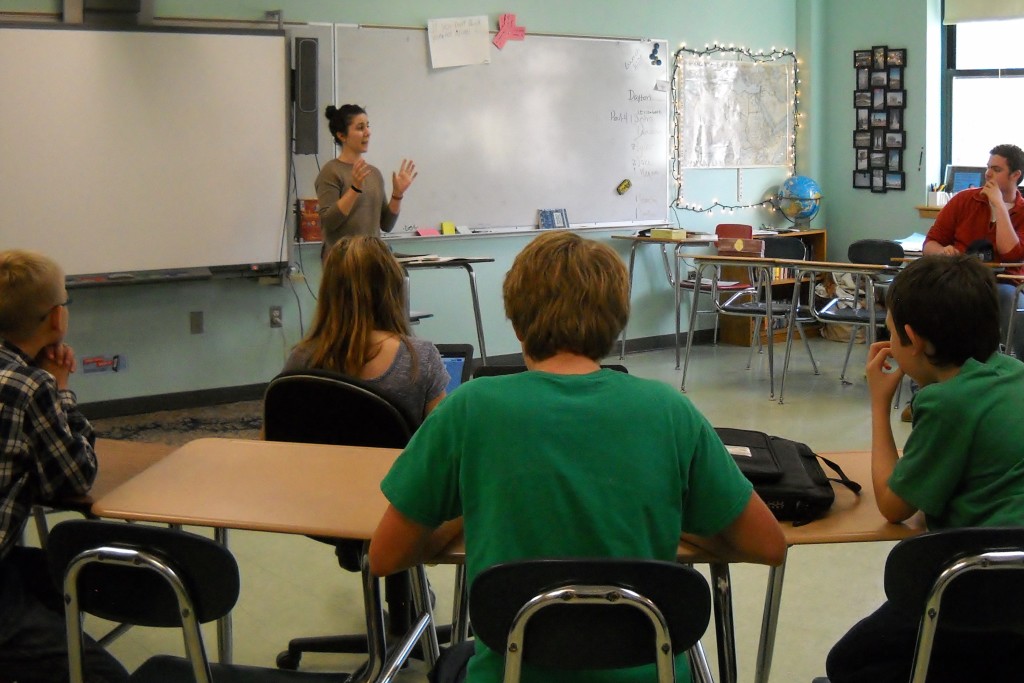Kids seem to often have a better ability to recognize problems than adults do. This was certainly the case in a Windsor classroom this week as I spoke with middle school students about two major environmental issues we’re facing today- microbeads in personal care products and ever-present plastic bags.
To the students, it’s simple: we use too much plastic, it ends up in our environment, and it’s really bad for ecosystems and public health. So, we’re going to figure out how to fix the problem! We’ve all seen the most visible impacts of plastic pollution, like the ubiquitous shopping bag stuck in the tree, or the bits of plastic mixed up with sand on the lake shore. But there are a lot of other serious – though less visible – problems associated with our dependence on these types of plastic products, as the students have discovered.
We were having this conversation thanks to the fact that these students are participating in the annual First Lego League competition. The League theme changes every year, and this year, its trash! Teams choose a trash-related problem, conduct research to develop solutions, and then program Lego robots to compete in the trash-filled “Robot Game”. The teams have spent weeks researching and speaking with professionals who deal with these issues, so I got to talk to them about VPIRG’s work – and how they can help us!
As one student told me, “The thing I find most shocking is that one microbead can be a million times more toxic than the water around it.” She’s right; after microbeads end up in our lakes and oceans, they act like sponges and attract toxic pollutants already in the water looking for a home (and unfortunately, that’s not where the problem ends).
The teams have just a couple weeks left until Vermont’s first-ever statewide Lego League competition at Norwich University. In that time, they’ll be perfecting their robots and figuring out how to get plastic microbeads and bags out of our environment.
While there is plenty to feel overwhelmed by when talking about these issues, the students were enthusiastic to find solutions and it was truly inspiring to hear their creative ideas.
Let’s stop pouring microbeads into Lake Champlain: sign our petition!

